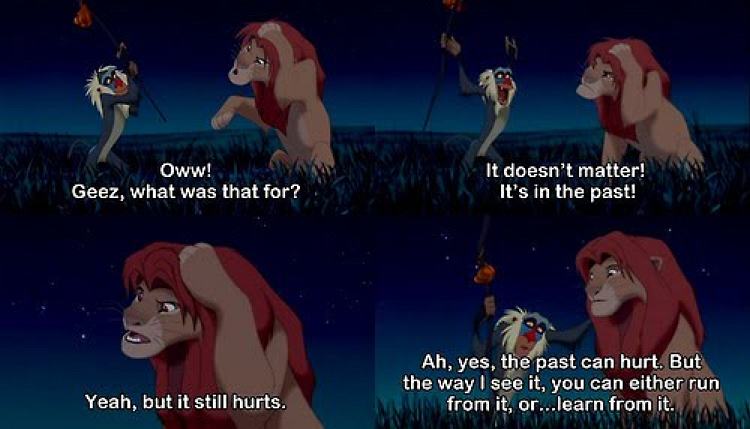Appropriating Adversity
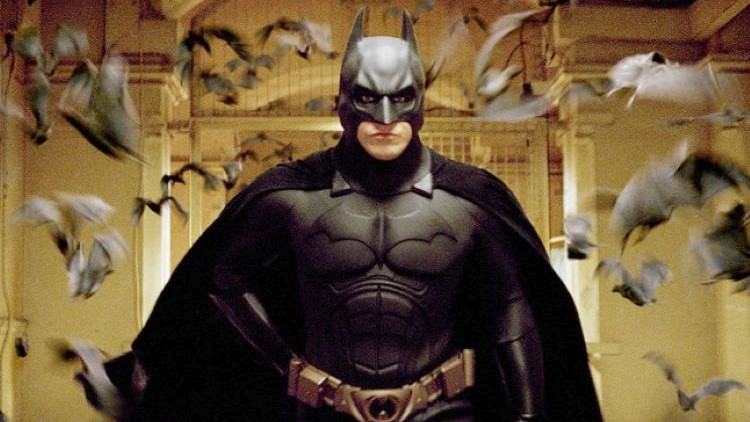
'Bats frighten me. It's time my enemies share my dread.' — Bruce Wayne, Batman Begins (2005) (Warner Bros/Everett Collection)
Why do we fight for anything in life? We could just accept things in our lives the way they are, come what may, and live with the short-termism of bare existence. Isn’t there something deeply unhuman about this, though? The human journey rides on causes worth fighting for. When we deploy our passions to fight for what we believe in, with foresight and deliberation, we flourish with verve and direction.
In this article I want to explore a mode of doing this which turns our negative emotions into positive motives. Life hurls a lot of shit our ways. But we can use the hardship we experience to our advantage by turning our afflictions into a fuel for change.
Have something to fight for
Imagine a life devoid of adversity. Without a sense of being wronged, is there anything left to fight for? Sure, we might be able to reason what the most moral thing to do is; but what makes us care enough to do it?
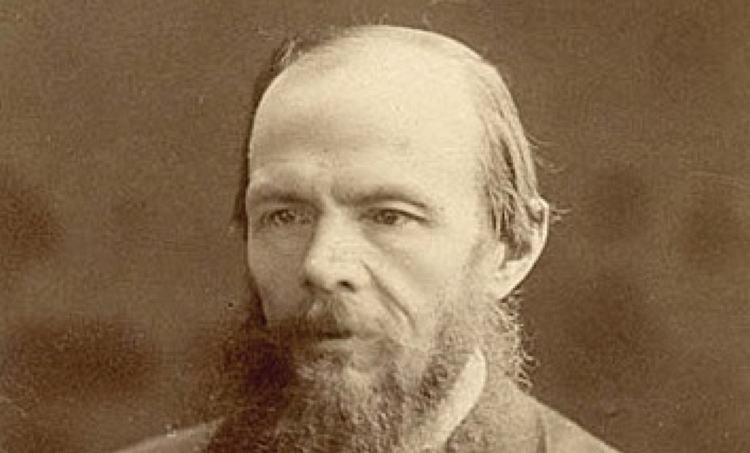
'There is nothing so annoying as to be fairly rich, of a fairly good family, pleasing presence, average education, to be "not stupid," kind-hearted, and yet to have no talent at all, no originality, not a single idea of one's own—to be, in fact, "just like everyone else". Many of our young women have thought fit to cut their hair short, put on blue spectacles, and call themselves Nihilists. By doing this they have been able to persuade themselves, without further trouble, that they have acquired new convictions of their own. Some men have but felt some little qualm of kindness towards their fellow-men, and the fact has been quite enough to persuade them that they stand alone in the van of enlightenment and that no one has such humanitarian feelings as they. Others have but to read an idea of somebody else's, and they can immediately assimilate it and believe that it was a child of their own brain.' — Fyodor Dostoevsky, The Idiot
Philosopher of moral psychology Michael Stöcker believes emotions sit at the cores of human identity, life, and value. A moral life is less pure than ethical theory. ‘One mark of a good life,’ he says, ‘is a harmony between one’s motives and one’s reasons, values, justifications.’ If they cannot unite what they care about with what they should care about, they will suffer from ‘moral schizophrenia’. If, however, they can bring together their reasons with the things that authentically motivate them, they will live an impassioned life full of unified purpose.
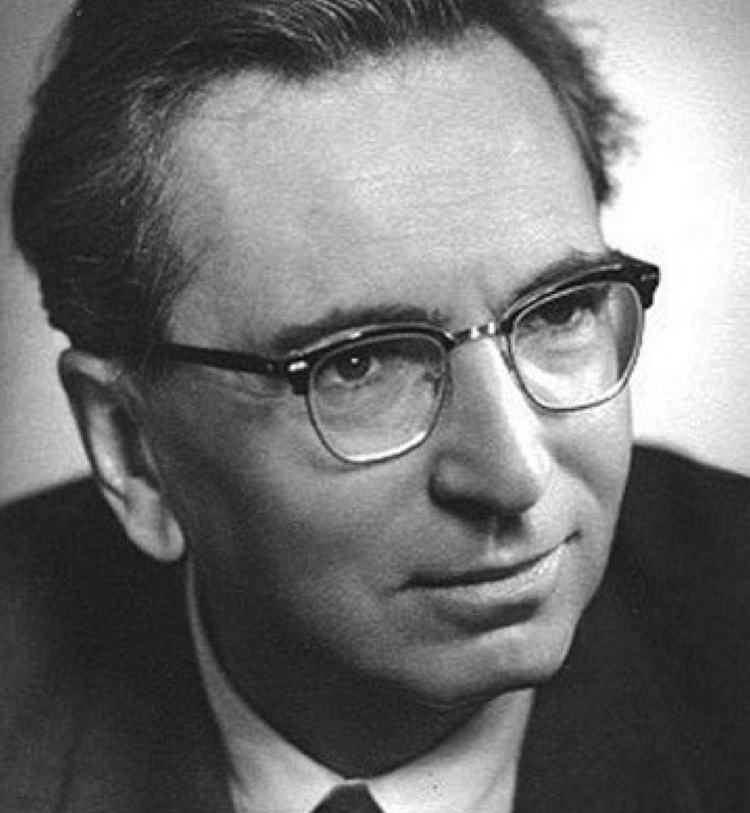
Viktor E. Frankl, MD, PhD (pictured) was a Holocaust survivor. He, therefore, knew a thing or two about suffering. During his life, as a neurologist, a psychiatrist, and an existential therapist, he searched for ways to overcome his suffering and found a solution in the notion of meaning. Frankl argued that our suffering, which is inherent to human experience, can be transcended if we will to find meaning within it. That is to say, at the moment we create personal stories of grief, which engender newfound purpose from our pain, we are healed: and suffering 'ceases to be suffering'. Frankl's 'will to meaning' was inspired by Søren Kierkegaard's philosophy and opposed Friedrich Nietzsche's 'will to power' and Sigmund Freud's 'will to pleasure' as fundamental human drives. He said: 'What man actually needs is not a tensionless state but rather the striving and struggling for a worthwhile goal, a freely chosen task. What he needs is not the discharge of tension at any cost but the call of a potential meaning waiting to be fulfilled by him.' But is this wishful thinking which underestimates misfortune and injustice? Or, in forging stories to create new goals, can we, indeed, use suffering to our strength?
Personally, I relate to what Stöcker says. When I rationally think at the moral importance of things I care deeply about now, such as social justice and animal rights, I see that my attitudes about them came from my own personal experiences (e.g. through poverty and having pets). I am pulled in one direction. While I can’t rationalise why these things are the most important things in the world to care about—preventing wars and genocides, promoting freedoms and democracy, redistributing resources to end starvation, controlling the threat of endemic diseases, and drastically slowing down climate change might stake more-objective claims—I personally feel the adversity poor people and animals face and I carry authentic motivations to correct the world accordingly. Such a way of being is apparent from the global reaction to Notre-Dame burning down and from people who campaign for certain charities and react to deaths in their sports communities. We can’t help what we care deeply about. A life without these irrational attitudes—a life ruled by ethical obligation—is a life bereft of a unique sense of identity, of clearly defined goals with passions to accompany them.
I am invigorated by my motives. They provide me with genuine feelings of compassion and empathy—ways of projecting my selfish interests onto others—for they are deeper than notions such as benevolence and sympathy, which only direct that I ought to care. It makes my motives a powerful tool for change.

Is too much comfort a bad thing? How should we parent it? I was once told by a good friend that I was lucky to have faced some adversity in my life. The adversity made me work hard, apparently. I'm still not sure how I feel about this comment. All I know is that I reacted to a situation I didn't choose and I was determined to work myself out of it.
Slave morality
Think about our motivational structure, too. We’re reactionary. We tend to adopt subjectively born attitudes in response to feeling wronged because we have visions about how the world ought to be. We might, then, become angry or sad or despondent in response to a perceived injustice.
But the emotions to these attitudes can be harnessed, for we each possess the memory and slight of thought to effect change in some way. Thus the proactive subjects amongst us will seek to overcome the specific injustices they’ve experienced in this world and gain control of them.

Bruce Wayne was fearful of bats as a young boy. But, as an adult who felt wronged by crime he lived in the midst of, he chose to take control of his fears. He wanted justice. Spurred by vengeance, he became Batman to take out criminals. Arguably, Wayne's path was selfish and lavishly destructive, while Batman operated with grudges, which beset his happiness. Still, his story arc exemplifies a self-empowering journey we can take too: one of self-understanding and action against perceived injustice. So, better than Batman, we could continually challenge our own notions of injustice in common moral languages to justify their communal importance to us and society. (Warner Bros. Pictures)
Committing oneself to an ideology, committing oneself to fighting an injustice, howsoever small and personal it’s felt, grants an individual something to fight for—their own causes and participation in wider movements. It’s not just about making our stories heard and offloading pain: it’s about understanding—understanding what justice means and appropriating the adversities that denies it; to take the upper hand against our weaknesses; to deploy our motives, as the directors of our emotions, to rationalise why some causes deserve precedence over others.

Slave morality and ressentiment: Friedrich Nietzsche spoke of 'ascetic ideals' of self-discipline in On The Genealogy of Morals. He was critical of people who feed on them, for they are sources of guilt and bad conscience and breed too much resentment. Meaning should come from suffering and surviving, not self-punishment. 'Man, the bravest animal and the one most accustomed to suffering, does not negate suffering in itself: he wants it, he even seeks it out, provided one shows him a meaning for it, a to-this-end of suffering.' The 'slaves', as people who try to negate their adversities, in contrast, who seek to overturn the values and virtues of their 'masters' (man-made tyrannies such as God), exude 'repressed priestly vengefulness' and lack the power to be existentially fulfilled. They revere themselves too much by indulging arrogance and weakness and exposing their weak wills and other 'poisonous', 'anti-life' concepts. If, instead, they searched for life-affirming individualistic freedoms, where man's salvation is himself, they could free themselves from their adversities' tortures. I agree. To me, a life without a sense of suffering, lacks power. I'd feel hollowed out. I also want to fight for something—not any old cause, like a popular political ideology or an obvious global cause action on by millions of other individuals already, but something personally felt. I feed from the adversity I've faced. I've learned to make something out of life in the face of nothing. Furthermore, the desire to be felt is a uniquely human gift which can bind our personal journeys together. In solidarity, as shared extensions of our own interests, we can feed on the same causes while, as Nietzsche says, fuelling personal meaning in suffering.
Moral relativism
In appropriating our own adversities and fighting for justice with them on scales bigger than ourselves we should concede that we’re rather individualistic creatures who primarily pursue their own interests. We focus on stamping out issues which are more relevant to us whilst staying wilfully ignorant of others which are less relevant to us, irrespective of the normative weight demanded by the moral question. Take some archetypes: a Western man arguing we should protect free speech on the Internet and a liberal woman campaigning to reduce the gender pay gap. Their issues matter because the individual authentically stands for them. There are probably compelling cases which are built on reason for them both (I’m intentionally staying neutral) but, frequently, I see people turn to these movements with zeal because their lives or livelihoods are being personally threatened. We see this behaviour a lot in the fights people choose. I know Muslims who hate racism, for good reason, but who are homophobic. Discrimination, then, to them, isn’t the problem: discrimination is their problem insofar as it affects them.
Is any of this surprising? I don’t think so. We’re ego-driven, self-concerned beings. Selfishly, we presuppose the importance of our own issues and frequently fail to feel the importance of others’. Indeed, we irrationally overestimate the momenta of our own problems, losing proportionality when we internalise the relevant moral questions. But, even so, metaethically, if there’s objectivity to morality, we don’t all respond to it in the same way anyway. For example, we usually agree that terrorism and robbing elderly people are wrong but we don’t ever reach a consensus on the appropriate level of retribution for either because our evaluative, not just rational, responses are starkly diverse (e.g. depending on our nationalistic attitudes and on our relationships with wealth and with being old). There are academic questions that should be asked, such as how responsible criminals are for their actions and what the consequences of certain punishments will be, but correct answers hide underneath the surface of our emotionally driven reactions. It’s our attitudes which connect us to the things we care about and cause prioritising objectivity to go astray.
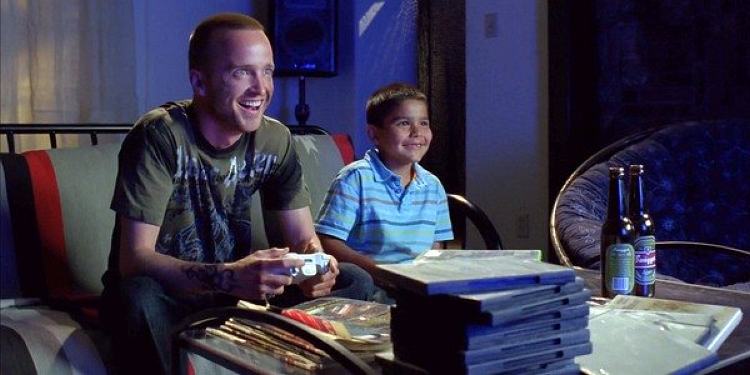
Pictured: One of my favourite fictional characters, Jesse Pinkman (Aaron Paul), playing games with child companion Brock (Ian Posada). Jesse's story in Breaking Bad was defined by his poor decision-making. It consistently led him to chains of adversity: one tragic failure after another. Did this make him a bad person? Well, Jesse frequently showed semblances of good conscience. For example, he genuinely felt other people's pain—a response which often wasn't felt by criminals around him. More revealingly, though, he craved punishment. He wanted to take responsibility for his actions: it was his process of overcoming—of becoming someone good in the world. He found atonement, in particular, from granting good lives to young boys. You see, Jesse felt incapable of choosing a good life for himself. So he chose a good life for Brock. While his compassion was clearly a selfish reflection of his own life, Jesse's honest perspective allowed him to authentically care about Brock. With humane decency and purpose, he salvaged a meaningful existence from helping children who otherwise lived without notions of escape. (Sony Pictures)
Moral relativism doesn’t have to be a big problem, though. Our attitudes provide the basis from which we can enact our moral formulas; and if we deploy these attitudes as armies of motives, we can be activated to fight genuine problems with genuine concerns. After all, our personal campaigns for justice embody being human: they can be exploited for humane causes. So if we wed our attitudes to causes that we rationally know affect others in similar ways, we can act with authenticity, to apprehend our own adversities and stamp out globally felt injustices at the same time—a solution to resolving moral quarrels which practically goes beyond cycles of dry debate and reaps fruit by virtue of accommodating inevitable human flaws.
Transformation
Campaigning for purposes bigger than ourselves, for individual goals and for morality, can have truly positive effects on our wellbeing. The world is cold, arid, and empty; if we disintegrate human virtue to morality’s bare formulas, we will quickly lose sight of why we care about anything. But, if we build meaningful ideologies born in our own adversities with our motives, we can grow our gardens of passion into purposive moral ideas. It won’t be easy but, in doing so, we won’t cower; we won’t deprive ourselves of growing away from the experiences that pin us down. So tap into your attitudes and, with vengeance, in control, lift the darkness and watch yourself grow out into the world.

